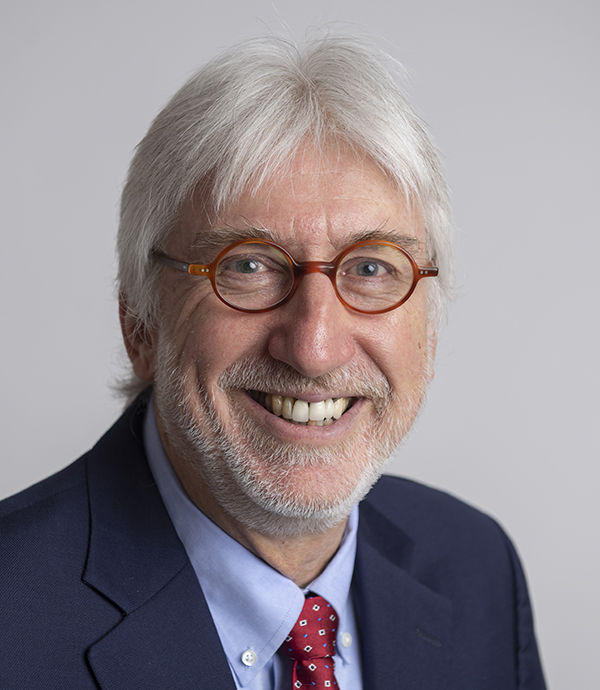- Editorial Offices
- 203 Brantly Hall
- Missoula, MT 59812
- (406) 243-2488
- themontanan@umontana.edu
Facetime: Larry Hufford
Managing a college is complex task, but Larry Hufford, evolutionary biologist and the new dean of UM's College of Humanities and Sciences, is used to life's intricacies.By Courtney Brockman
Hufford joins UM from Washington State University. He earned a doctorate in botany in 1986 from the University of California, Berkeley, and held postdoctoral research positions at the University of Zurich, the University of Arizona and the University of Kansas.

After working as an assistant biology professor at the University of Minnesota-Duluth, he moved to WSU in 1993 and served as director of the School of Biological Sciences, interim director of the School of the Environment and interim dean of the College of Arts and Sciences.
Hufford co-led planning for the development of WSU’s College of Arts and Sciences and received the university’s Outstanding Chair/Director award and the college’s Excellence in Institutional Service award in 2015.
“It was delightful to lead a large team while working across many academic units to understand their goals and concerns,” Hufford says. “Seeing the new college emerge was very pleasing, and later I had the opportunity to serve as interim dean of the college I had helped form.”
As the Herbert L. Eastlick Distinguished Professor in the School of Biological Sciences, Hufford directed the Marion Ownbey Herbarium and the Conner Museum of Natural History. His research addresses the evolutionary origins of biological diversity.
“My early work explored the role of developmental evolution as a force in creating the diversity of flowers,” he said. “I spent my time thinking about the forms of flowers – how all of those lovely, intricate shapes, as well as complex pollination systems, evolved. I love thinking about diversity – how it forms and functions and its very great importance.”
Hufford’s work now focuses on how landscape complexity and geography shape diversity’s evolution – such as how mountain ranges, rivers and canyon systems in the West bias plant migration – and how it applies to conservation and the consequences of climate change.
An avid reader, Hufford’s interests range across the arts, humanities and sciences, and he enjoys hiking, backpacking, birding and photography.
What book are you currently reading?
I usually have more than one book going at a time, and I’m currently reading Eula Biss’s “On Immunity” (reflections on immunity and vaccination), Anthony Grafton’s “Inky Fingers” (about the way humanists in the 16th and 17th centuries constructed books) and Masha Gessen’s “Surviving Autocracy” (a dissection our current political moment).
What’s your favorite board game?
Scrabble, but I always lose.
What inspires you?
Beauty, ideas, a great book.
When you were 12, what did you want to be when you grew up?
Through most of my childhood I wanted to be an astronomer, but I always had strong urges toward writing.
How do you start your day?
With a cup of tea. Everything starts with a cup of tea.
What is your favorite dessert?
Cake.
What was your worst subject in school?
Math.
What’s a place you wish to visit?
I’m an inveterate traveler, and it takes very little for me to grow intensely interested in visiting a place. Put a map in front of me, and my mind travels, desire follows, and then I begin reading and planning. Right now, I’d like to be in Tierra del Fuego, the Scottish Highlands and the Northwest Territories of Canada.
What teacher do you remember most and why?
Professor John Mutchmor in Biology 101, M.W.F. 8 a.m., during my first quarter at Iowa State University. His lectures were clear and orderly, and he drew in colored chalk to illustrate his topics. He served as the model for my own teaching through much of my early career, until I shifted toward project-based teaching and more open-ended questioning of students. I should also say that teachers – including several professors – have been the most important people in my life, outside of my mother.
What is an important life lesson for someone to learn?
There are always options, and things will work out.
What do you like most about UM?
The people at UM are very interesting, and, moreover, they are engaged and committed to the success of students and the University.
What is your dream accomplishment at UM?
I want to create effective interdisciplinary opportunities for education and research that address the complex problems we face with environmental degradation, social injustice and inequity, and the rapid onset of climate change. To prepare students to address these complex problems will require an integrative approach to education that spans what we do across the College of Humanities and Sciences and incorporates other colleges at UM as well. Our interdisciplinary opportunities also need to support research teams that bring multiple approaches and ways of thinking to tackle the immense problems we face.




